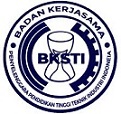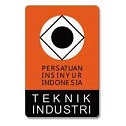Improving Entrepreneurial Competence Through Talent
Abstract
The research aims to determine the differences in the entrepreneurial mentality of talented or untalented students in conducting entrepreneurial incubation activities. The research uses a sample of students who have entrepreneurial talent and students who do not have entrepreneurial talent as participants in entrepreneurial incubation. Participants obtain guidance, mentoring, strengthening potential and facilitation in accordance with their respective talents. Talent mapping and mentoring are conducted through incubation treatment of students as an experimental group who have talent and students as a control group who do not have entrepreneurial talent. Both groups are equally treated with entrepreneurial mentoring. Data collection through interviews, questionnaires, documentation, literature studies, observations and research analysis with quasi-experimental trials of experimental groups (KE) and control groups (KK) with pretest-posttest control group design. The final result of the data through the trend of business development carried out by entrepreneurial participants. The development of the entrepreneurial mentality of students who have talent is higher than entrepreneurs who do not have entrepreneurial talent, based on valid model testing, goodness of fit is able to improve the entrepreneurial mentality of talent-based students.
Full Text:
PDFReferences
Antonic, B.,& Hisrich, R. (2003). Clarifrying The Intrapreneurship Concept, Emerald Journal of Small Bussiness and Enterprise Development, 10 (1), 168-169.
Armin,. S. (2007). Atheoretical Analysis Of Optimal Financing Strategies For Different Types Of Capital Constrained Entrepreneurs. Journal of Business Venturing. 22 (18). 753-781.
Astamoen. (2005). Entrepreneurship. Bandung, Alfabeta.
Bergek, A., & Norman, C. (2008). Incubator Best Practice: A Framework. Journal Technovation. 28(1), 20-28
Bowie. J., D. Harris,. H., Sapienza, J., Norman, E. (2009). Ethics and Entrepreneurship. Journal of Business Venturing. 24 (413).102-120
Deniz, U., PaulWesthead,. M. (2009). The Extentand Nature Of Opportunity Identification By Experienced Entrepreneurs. Journal of Business Venturing. 24 (19), 99-115
Gary. E., Bull, I., & Willard. (1993). Towards A Theory Of Entrepreneurship. 8 (1). Journal of Business Venturing. 183-195
Hubeis, M. (2009). Prospek Usaha Kecil Dalam Wadah Inkubator. Jakarta. PT. Ghalia Indah.
Joseph, F.,H. J. R. (2010). Multivariate Data Analysis : A Global Perspective, Publisher.: Boston
Makarim, N. (2021). Merdeka Belajar Kampus Merdeka, Kementrian Pendidikan dan Kebudayaan Republik Indonesia. Jakarta
Mian, S. A. (1997). Assessing And Managing The University Technology Business Incubator:An Integrative Framework. Journal of Business Venturing. 12(4):251-285.
Musrofi, M. (2010). Potensi Preneur. Surakarta. Talent Center Indonesia.
Sugiyono, S. (2019). Penelitian Pengembangan R & D. Bandung. Indonesia: Alfabeta.
Suherman, E. (2008). Desain Pembelajaran Kewirausahaan. Bandung. PT. Alfabeta
Suranto, & Rahmawati. (2015). Entrepreneurship Incubator model based on Empowerment to Improve Independence graduates of the faculty of Economics Sebelas Maret University. Journal European of Business and Social Sciences, 03(02), 47-57
Suranto. (2018). Wirausaha Berbasis Inkubator dan Bakat, Surakarta, Navida Media
Suranto. Siti., N, & Adcharina, P. (2022). Entrepreneurship Learning Model Creates New Entrepreneurs “Merdeka Belajar Kampus Merdeka” in the University. Jurnal Penelitian Ilmu Ekonomi. 13(1), 84-94.
Suranto., Rahmawati., Siti, N., & Sri, S, P. (2012). Entrepreneurship Incubator Increase Independence Students (Case Studies Faculty of Information Engineering Program of the State Islamic University Sunan Sainstech Kalijaga Yogyakarta). International Conference on Vocational Education and Training (ICVET). 977-23017-14009, 78-85.
DOI: http://dx.doi.org/10.24014/jti.v9i1.22612
Refbacks
- There are currently no refbacks.
Copyright (c) 2023 suranto suranto

This work is licensed under a Creative Commons Attribution-NonCommercial-ShareAlike 4.0 International License.
Jurnal Teknik Industri
P-ISSN 2460-898X | E-ISSN 2714-6235
Published by:
Industrial Engineering Department
Universitas Islam Negeri Sultan Syarif Kasim Riau, Indonesia
Office Address:
H.R. Soebrantas KM 15.5, Tampan, Pekanbaru, Riau, Indonesia 28293
email: jti.fst@uin-suska.ac.id
Indexed by:
JTI : Jurnal Teknik Industri under a Creative Commons Attribution-NonCommercial-ShareAlike 4.0 International License.

















